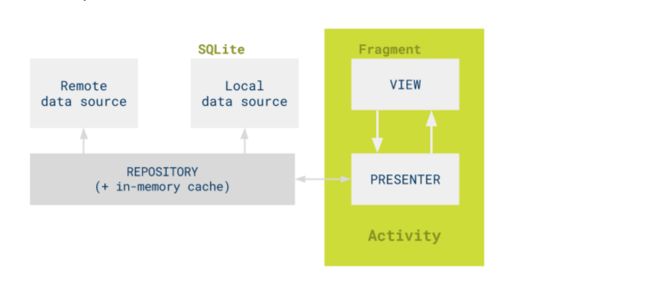- 持续稳居前列:高排名公众号运营心法
xinxinseo_
大数据微信搜索引擎微信公众平台百度
在微信公众号竞争激烈的环境下,短暂的高排名或许能凭借运气和短期策略实现,但想要持续稳居前列,绝非易事。这需要深入理解平台规则,以长远眼光和系统性思维进行运营,以下是助力公众号保持高排名的核心心法。内容为王:打造持续优质的内容生态优质内容是公众号立足的根本,更是维持高排名的核心。一方面,要保持内容的稳定性和连贯性,围绕公众号定位,建立完善的内容体系。例如,一个科技类公众号,可将内容划分为行业趋势解读
- 期待在 VR 森林体验模拟中实现与森林的 “虚拟复现”
ykjhr_3d
vr
VR森林体验模拟,无疑是科技与自然领域一次极具开创性意义的奇妙碰撞。它借助前沿的虚拟现实技术,以别出心裁、独树一帜的方式,为我们精心打造并带来了一场前所未有的森林探索奇幻之旅。在教育领域,于中小学的自然科学课堂上,学生们无需长途跋涉,就能通过VR森林体验模拟,身临其境地观察珍稀植物的生长细节,近距离感受森林生态系统的奥秘,极大地激发了他们对自然科学的浓厚兴趣;在专业的林业院校,这一技术更是成为了重
- Excalidraw:开源手绘风格白板工具的技术与生态解析
wylee
开源
一、项目定位与核心价值Excalidraw是一款基于浏览器的开源虚拟手绘风格白板工具,由Excalidraw团队开发并维护。项目以MIT协议开源,旨在提供轻量级、高定制性的在线绘图解决方案,适用于流程图设计、原型绘制、教学演示等场景。截至2025年3月,项目已发布v0.18.0版本,月下载量超24.5万次,被GoogleCloud、Meta等企业集成,成为开源协作工具领域的标杆项目。二、核心功能与
- 公众号 SEO 排名优化效果跟踪:基础数据记录表
xinxinseo_
搜索引擎微信公众平台微信百度大数据
在进行公众号SEO排名优化时,系统记录和分析数据是评估优化效果、调整策略的关键。以下为精心设计的基础数据记录表模板,涵盖核心指标,助你清晰掌握优化进展。一、文章基础数据记录表文章标题发布时间阅读量点赞数在看数留言数分享数阅读完成率平均阅读时长搜索来源阅读量搜索来源占比[填写文章标题][具体年月日时分][数字][数字][数字][数字][数字][百分比][X分X秒][数字][百分比][填写文章标题][
- Conda安装与使用
目录一、软件安装及conda管理1.conda下载2.miniconda安装二、环境配置1.配置镜像:2.创建环境、移除环境:3.查看小环境4.进入、退出小环境5.查找并安装软件三、一步到位其他:参考资料:一、软件安装及conda管理conda可以来管理大量的生物信息学软件,或者想要复现一些文章中的实验结果需要不同环境的切换。1.conda下载(1)anacondaanaconda|镜像站使用帮助
- 0.基本环境配置、数据库介绍
ersanshi055
生信小菜鸟生信基本知识r语言生信分析
目录一、R与Rstudio的下载与安装二、R包安装与加载1.R包安装2.R包加载三、常用R包1.tidyverse2.ggplot2四、常用数据库1.GEO2.TGGA一、R与Rstudio的下载与安装介绍:Home-RDocumentation下载:R:CRAN:MirrorsRstudio:DownloadRStudio-PositR、Rstudio安装:根据指引安装,R和Rstudio比较占
- 富集分析——GO、KEGG
ersanshi055
生信小菜鸟富集分析GOkegg
一、富集分析的基础认知在生物信息学研究领域,基因功能解析及通路阐释是众多分析流程中的关键环节,富集分析(EnrichmentAnalysis)是将基因或蛋白列表按照功能进行分类的统计方法,目的是找出在特定基因集中显著富集的功能类别或通路。通过这种方法,研究人员可以理解一组基因(如差异表达基因)在哪些生物学过程、分子功能或通路中代表。1.富集分析分类基因本体论富集分析(GeneOntologyEnr
- Linux中安装Tomcat
十一的学习笔记
运维中服务安装管理linuxtomcat运维
文章目录一、Tomcat介绍1.1、Tomcat是什么1.2、Tomcat的工作原理1.3、Tomcat适用的场景1.4、Tomcat与Nginx、Apache比较1.4.1、优势1.4.2、劣势1.4.3、定位功能1.5、Tomcat的主要组件1.6、Tomcat的主要配置文件二、Tomcat安装2.1、查看可用的JDK2.2、安装OpenJDK112.3、配置环境变量2.4、验证安装2.5、查
- 【Bluedroid】BLE 地址解析列表的初始化与清除机制(btm_ble_resolving_list_init)
byte轻骑兵
AndroidC++AndroidBluedroid
本文深入分析Android蓝牙协议栈中BLE地址解析列表的核心管理流程,涵盖从主机协议栈初始化到控制器硬件操作的全链路实现。重点解析可解析私有地址(RPA)处理机制、隐私保护技术实现,探讨标准HCI命令与厂商特定命令在地址解析中的协同工作方式,揭示了BLE隐私机制的底层实现原理。一、概述1.BLE隐私机制基础可解析随机地址(RPA)与身份解析密钥(IRK)解析列表(ResolvingList)的作
- java 同步redis到mysql_Yii2 redis同步数据到mysql
兰艳知己
java同步redis到mysql
将redis数据写入mysql中:本次案例讲解将如何将商城中商品浏览次数通过缓存记录并写入mysql中具体的redis安装过程暂且就省略了.....一、安装redis插件|配置rediscomposerrequireyiisoft/yii2-redis找到common的config文件,在components下加入redis配置参数'redis'=>['class'=>'yii\redis\Con
- TDengine 集群节点管理
TDengine (老段)
TDengineSQL手册tdengine数据库时序数据库大数据物联网iotdbiot
简介组成TDengine集群的物理实体是dnode(datanode的缩写),它是一个运行在操作系统之上的进程。在dnode中可以建立负责时序数据存储的vnode(virtualnode),在多节点集群环境下当某个数据库的replica为3时,该数据库中的每个vgroup由3个vnode组成;当数据库的replica为1时,该数据库中的每个vgroup由1个vnode组成。如果要想配置某个数据库为
- 一场 6 点半开启的慢跑,是我们对八周年最真实的记录
今天,涛思数据八岁了。从2017年成立到现在,已经过去了整整八年。我们用一款开源时序数据库——TDengine,把中国团队的技术能力写进了全球开发者的代码库,也写进了越来越多行业用户的生产系统。八年时间,说长不长,说短也不短。我们经历了初创时的摸索,度过了技术路径尚未被验证的阶段,也一步步走到了今天这个节点:我们仍在奔跑,但不再孤身。这一次,我们选择用一条“慢跑”路线,回望这八年的路。详情关注TD
- linux环境下tomcat安装
M.za
linuxtomcat运维服务器
Tomcat一、什么是Tomcat?1.1、Tomcat介绍Tomcat又叫ApacheTomcat最早是sun公司开发的,1999年捐献给apache基金会,隶属于雅加达项目,现在已经独立成一个顶级项目,因为tomcat技术先进,性能稳定,又是一个开源的web应用服务器,所以很多企业都在使用,很多Java开发者也在使用,开发调试jsp的首选,被更多企业用于Java容器。Tomcat官网:http
- 84.7k Star!Excalidraw:开源的在线白板工具,具备手绘风格和实时协作功能
蚝油菜花
每日AI项目与应用实例人工智能开源画板实时协作
❤️如果你也关注大模型与AI的发展现状,且对大模型应用开发非常感兴趣,我会快速跟你分享最新的感兴趣的AI应用和热点信息,也会不定期分享自己的想法和开源实例,欢迎关注我哦!微信公众号|搜一搜:蚝油菜花快速阅读Excalidraw是一款开源的在线白板工具,具备手绘风格和实时协作功能。支持多种绘图工具、便捷导出、离线可用及跨平台兼容性。适用于远程协作、头脑风暴、产品设计和技术绘图等多个场景。正文(附运行
- 洛谷 B3627 立方根--二分法求解整数立方根问题
jdlxx_dongfangxing
算法c++二分法
一、问题重述与数学建模给定一个正整数n,我们的目标是计算其立方根的整数部分,即找到最大的整数m满足m³≤n。这个问题可以形式化表述为:数学定义:⌊∛n⌋=max{x∈ℤ⁺|x³≤n}问题特性分析:单调性保证:立方函数f(x)=x³在正整数域上是严格单调递增的函数有界性:解的范围明确限定在[1,n]区间内离散性:我们需要寻找的是整数解而非实数解应用意义:该问题在实际中常用于需要快速估算立方根的场合,
- 基于单片机的住宅防火防盗报警系统设计
启初科技
51单片机毕业设计单片机毕业设计单片机嵌入式硬件
文章目录一、系统概述二、项目内容和功能介绍三、效果图四、资料获取一、系统概述基于单片机的住宅防火防盗报警系统设计介绍一、系统设计背景与意义随着城市化进程的加快和居民生活水平的提高,住宅安全已成为人们关注的焦点。火灾和盗窃是威胁住宅安全的两大主要因素,传统的人工巡查和简单的安防设备已难以满足现代住宅的安全需求。基于单片机的住宅防火防盗报警系统集成了传感器技术、单片机控制技术和无线通信技术,能够实时监
- Python中什么时候需要返回值,什么时候不需要返回值???
似乎很简单
Python学习日记python开发语言
在Python中,函数是否需要返回值取决于它的设计目的和功能需求。需要返回值的情况计算结果需要被后续代码使用当函数的主要目的是计算或生成数据,且调用方需要这些结果时:defadd(a,b):returna+b#结果需要被其他代码使用total=add(3,5)#需要返回值需要传递状态或信息如果函数执行后需要告诉调用方是否成功、返回状态码或错误信息:defvalidate_input(input):
- Python中的高阶函数---便捷的语法书写!!!!,可以简化一些函数的书写!!!
似乎很简单
Python学习日记python开发语言学习笔记
目录1.map()函数示例1:单可迭代对象(平方运算)示例2:多可迭代对象(元素相加)2.mapvs列表推导式什么是列表推导式(ListComprehension)?对比示例列表推导式的优势map的优势5.实际应用场景场景1:批量转换数据类型场景2:多列数据处理场景3:链式操作6.性能与注意事项总结3.sorted()函数1.语法:sorted(iterable,*,key=None,revers
- 蓝牙协议栈低功耗之安全管理协议层(SMP)
写代码的无赖的猴子
BLE低功耗蓝牙协议栈网络信息与通信物联网
逻辑链路控制和适配协议层L2CAPSMP层阶段一阶段二Legacyparing安全连接交换公匙鉴权阶段1鉴权阶段2阶段三LElegacypairing:LESecureConnections交叉密匙特性配对PDU类型Hello,我是无赖的猴子,一个蓝牙爱好者,分享蓝牙相关的知识,关注我,学习蓝牙:蓝牙文章链接直达:1.profile层(待更新)2.属性协议层(ATT)(待更新)3.安全管理协议层(
- 在实训云平台上配置云主机
酒城译痴无心剑
Spark基础学习笔记(2)实训云云主机远程连接
文章目录零、学习目标一、实训云升级二、实训云登录(一)登录实训云(二)切换界面语言(三)规划云主机实例三、创建网络三、创建路由器四、连接子网五、创建虚拟网卡六、管理安全组规则七、创建云主机(一)云主机规划(二)创建ied云主机(三)创建其它云主机八、本机利用FinalShell连接虚拟机(一)连接ied云主机(二)连接其它云主机九、配置云主机(一)配置ied云主机1、查看IP地址2、配置主机名3、
- redis做同步或异步队列
瞧着不像好人呐
redisredisjava数据库
redis实现队列主要是使用数据结构中的list,相当于Java中的ArrayList因为它是按照塞入顺序排序的结构,我们就可以按照左边塞入,右边取出的方式来实现先入先出的队列需求。publicvoidrpush(Stringkey,Stringvalue){Jedisjedis=null;try{jedis=jedisPool.getResource();jedis.rpush(key,valu
- VR重现红军过雪山:一场穿越时空的精神洗礼
广州华锐视点
vrVR重现红军过雪山
VR重现红军过雪山这一创新形式,对大众了解长征历史、传承长征精神有着不可估量的重要意义,在红色文化传播的征程中留下了浓墨重彩的一笔。在教育领域,VR技术为历史教学带来了革命性的变革。传统的历史教学往往局限于书本知识和教师的口头讲述,学生很难真正理解历史事件的复杂性和历史人物的情感。而VR红军过雪山体验,让学生们从被动的知识接受者转变为主动的探索者。在课堂上,学生们戴上VR设备,便能穿越时空,与红军
- HarmonyOS 入门到精通:为什么状态管理是鸿蒙开发的核心?
逻极
harmonyos鸿蒙笔记harmonyos华为鸿蒙入门到精通状态管理状态模式arkts
在现代应用开发中,状态管理是构建响应式应用的基石。对于鸿蒙这种面向全场景的分布式操作系统,状态管理机制显得尤为重要。它不仅是实现复杂交互逻辑的关键,还直接关系到应用的性能、可维护性和用户体验。什么是状态管理?状态是指UI组件所依赖的、会随时间变化的数据。状态管理则是对这些变化数据的有效组织和控制,包括:状态的创建与初始化:在应用启动或组件加载时,为状态变量分配初始值,确保组件能够正确渲染初始界面。
- 产品经理岗位职责拆解
火火PM打怪中
产品经理
以下是产品经理岗位职责的详细分解表,涵盖工作内容、核心动作及输出成果:岗位职责具体工作内容输出成果1.日常版本迭代管理需求分析及PRD产出协调资源推动产品上线-收集业务/用户需求,分析可行性及优先级-撰写PRD文档,明确功能逻辑及交互流程-协调研发、测试、设计资源,制定迭代排期-监控开发进度,解决阻塞问题,组织验收-需求分析报告-PRD文档(含原型图/流程图)-版本排期表-上线验收报告2.跨部门协
- Redis 实现同步锁
1、技术方案1.1、redis的基本命令1)SETNX命令(SETifNoteXists)语法:SETNXkeyvalue功能:当且仅当key不存在,将key的值设为value,并返回1;若给定的key已经存在,则SETNX不做任何动作,并返回0。2)expire命令语法:expireKEYseconds功能:设置key的过期时间。如果key已过期,将会被自动删除。3)DEL命令语法:DELkey
- 【面面俱到/c++】多态的实现(重载、模板、虚函数表、虚基表)
ChongYu重玉
面面俱到/c++面试c++开发语言笔记经验分享面试
目录一分钟速面静态多态(编译时多态)函数重载运算符重载模板动态多态(运行时多态)虚函数虚函数表vtable、虚函数表指针vptr虚基表指针vbptr一分钟速面c++的多态有静态多态(编译时多态)和动态多态(运行时多态)。静态多态主要依靠函数重载、运算符重载和函数模板实现,在编译期间生成不同的函数与类型,由编译器根据函数签名或模板实例化选择正确函数与类型。多态多态主要依靠继承、虚函数与虚函数重写实现
- 企业内网系统:从传统开发到智能赋能的进化之路
飞算JavaAI开发助手
科技人工智能大数据java
在当今数字化浪潮中,企业内网系统作为支撑日常运营的核心基础设施,其开发效率与质量直接关系到企业的竞争力。传统开发模式下,程序员需要手动完成需求分析、架构设计、代码编写、测试调试等全流程工作,不仅耗时费力,还容易因人为疏忽导致质量隐患。而随着人工智能技术的突破性进展,以飞算JavaAI为代表的智能开发工具正在重塑企业内网系统的开发范式,为程序员提供从设计到落地的全链路智能支持。一、传统企业内网系统开
- B端模块(1):用户管理模块的定义、功能、页面和设计原则。
B端管理系统都是各个模块的有机结合,保证系统的正常运转,这点和人体系统一样,比如消化、呼吸、循环系统等等。从本期开始,贝格前端工场将详细B端各个模块,一共分为20期,本期是第一期,欢迎老铁们持续关注。B端的用户管理指的是针对企业或者组织内部的业务用户进行管理和控制的一种系统功能。在B端(BusinesstoBusiness)场景中,企业通常需要对其内部员工、合作伙伴、供应商等业务用户进行管理,以确
- 钉钉企业应用开发系列:前端实现钉钉扫码登录功能
脑袋大大的
钉钉生态创业者专栏钉钉前端第三方登录
本文将围绕“钉钉扫码登录”这一功能点展开讲解,并结合前端技术栈(HTML+JavaScript+Vue3)进行实现。我们将通过调用钉钉开放平台提供的JSAPI来实现扫码登录的功能,并展示完整的代码示例。一、前置准备1.注册钉钉开发者账号并创建企业应用访问钉钉开放平台。创建一个企业内部应用或第三方企业应用。获取corpId和redirect_uri等信息,用于后续配置。2.获取扫码登录权限确保你的应
- MCP协议采用客户端-服务器架构的深层逻辑与架构对比分析
一、架构选择的核心动因1.功能解耦与安全边界的强制性要求MCP采用客户端-服务器(C/S)架构的核心动因源于AI系统与真实世界交互的特殊性:权限分层控制:主机(Host)作为协调层,严格划分客户端(Client)与服务端(Server)的操作权限。例如医疗场景中,诊断模型(Client)仅能通过医院授权的主机访问脱敏病历服务器,无法直接接触原始数据。沙箱隔离需求:每个MCP服务器运行在独立容器中(
- java类加载顺序
3213213333332132
java
package com.demo;
/**
* @Description 类加载顺序
* @author FuJianyong
* 2015-2-6上午11:21:37
*/
public class ClassLoaderSequence {
String s1 = "成员属性";
static String s2 = "
- Hibernate与mybitas的比较
BlueSkator
sqlHibernate框架ibatisorm
第一章 Hibernate与MyBatis
Hibernate 是当前最流行的O/R mapping框架,它出身于sf.net,现在已经成为Jboss的一部分。 Mybatis 是另外一种优秀的O/R mapping框架。目前属于apache的一个子项目。
MyBatis 参考资料官网:http:
- php多维数组排序以及实际工作中的应用
dcj3sjt126com
PHPusortuasort
自定义排序函数返回false或负数意味着第一个参数应该排在第二个参数的前面, 正数或true反之, 0相等usort不保存键名uasort 键名会保存下来uksort 排序是对键名进行的
<!doctype html>
<html lang="en">
<head>
<meta charset="utf-8&q
- DOM改变字体大小
周华华
前端
<!DOCTYPE html PUBLIC "-//W3C//DTD XHTML 1.0 Transitional//EN" "http://www.w3.org/TR/xhtml1/DTD/xhtml1-transitional.dtd">
<html xmlns="http://www.w3.org/1999/xhtml&q
- c3p0的配置
g21121
c3p0
c3p0是一个开源的JDBC连接池,它实现了数据源和JNDI绑定,支持JDBC3规范和JDBC2的标准扩展。c3p0的下载地址是:http://sourceforge.net/projects/c3p0/这里可以下载到c3p0最新版本。
以在spring中配置dataSource为例:
<!-- spring加载资源文件 -->
<bean name="prope
- Java获取工程路径的几种方法
510888780
java
第一种:
File f = new File(this.getClass().getResource("/").getPath());
System.out.println(f);
结果:
C:\Documents%20and%20Settings\Administrator\workspace\projectName\bin
获取当前类的所在工程路径;
如果不加“
- 在类Unix系统下实现SSH免密码登录服务器
Harry642
免密ssh
1.客户机
(1)执行ssh-keygen -t rsa -C "
[email protected]"生成公钥,xxx为自定义大email地址
(2)执行scp ~/.ssh/id_rsa.pub root@xxxxxxxxx:/tmp将公钥拷贝到服务器上,xxx为服务器地址
(3)执行cat
- Java新手入门的30个基本概念一
aijuans
javajava 入门新手
在我们学习Java的过程中,掌握其中的基本概念对我们的学习无论是J2SE,J2EE,J2ME都是很重要的,J2SE是Java的基础,所以有必要对其中的基本概念做以归纳,以便大家在以后的学习过程中更好的理解java的精髓,在此我总结了30条基本的概念。 Java概述: 目前Java主要应用于中间件的开发(middleware)---处理客户机于服务器之间的通信技术,早期的实践证明,Java不适合
- Memcached for windows 简单介绍
antlove
javaWebwindowscachememcached
1. 安装memcached server
a. 下载memcached-1.2.6-win32-bin.zip
b. 解压缩,dos 窗口切换到 memcached.exe所在目录,运行memcached.exe -d install
c.启动memcached Server,直接在dos窗口键入 net start "memcached Server&quo
- 数据库对象的视图和索引
百合不是茶
索引oeacle数据库视图
视图
视图是从一个表或视图导出的表,也可以是从多个表或视图导出的表。视图是一个虚表,数据库不对视图所对应的数据进行实际存储,只存储视图的定义,对视图的数据进行操作时,只能将字段定义为视图,不能将具体的数据定义为视图
为什么oracle需要视图;
&
- Mockito(一) --入门篇
bijian1013
持续集成mockito单元测试
Mockito是一个针对Java的mocking框架,它与EasyMock和jMock很相似,但是通过在执行后校验什么已经被调用,它消除了对期望 行为(expectations)的需要。其它的mocking库需要你在执行前记录期望行为(expectations),而这导致了丑陋的初始化代码。
&nb
- 精通Oracle10编程SQL(5)SQL函数
bijian1013
oracle数据库plsql
/*
* SQL函数
*/
--数字函数
--ABS(n):返回数字n的绝对值
declare
v_abs number(6,2);
begin
v_abs:=abs(&no);
dbms_output.put_line('绝对值:'||v_abs);
end;
--ACOS(n):返回数字n的反余弦值,输入值的范围是-1~1,输出值的单位为弧度
- 【Log4j一】Log4j总体介绍
bit1129
log4j
Log4j组件:Logger、Appender、Layout
Log4j核心包含三个组件:logger、appender和layout。这三个组件协作提供日志功能:
日志的输出目标
日志的输出格式
日志的输出级别(是否抑制日志的输出)
logger继承特性
A logger is said to be an ancestor of anothe
- Java IO笔记
白糖_
java
public static void main(String[] args) throws IOException {
//输入流
InputStream in = Test.class.getResourceAsStream("/test");
InputStreamReader isr = new InputStreamReader(in);
Bu
- Docker 监控
ronin47
docker监控
目前项目内部署了docker,于是涉及到关于监控的事情,参考一些经典实例以及一些自己的想法,总结一下思路。 1、关于监控的内容 监控宿主机本身
监控宿主机本身还是比较简单的,同其他服务器监控类似,对cpu、network、io、disk等做通用的检查,这里不再细说。
额外的,因为是docker的
- java-顺时针打印图形
bylijinnan
java
一个画图程序 要求打印出:
1.int i=5;
2.1 2 3 4 5
3.16 17 18 19 6
4.15 24 25 20 7
5.14 23 22 21 8
6.13 12 11 10 9
7.
8.int i=6
9.1 2 3 4 5 6
10.20 21 22 23 24 7
11.19
- 关于iReport汉化版强制使用英文的配置方法
Kai_Ge
iReport汉化英文版
对于那些具有强迫症的工程师来说,软件汉化固然好用,但是汉化不完整却极为头疼,本方法针对iReport汉化不完整的情况,强制使用英文版,方法如下:
在 iReport 安装路径下的 etc/ireport.conf 里增加红色部分启动参数,即可变为英文版。
# ${HOME} will be replaced by user home directory accordin
- [并行计算]论宇宙的可计算性
comsci
并行计算
现在我们知道,一个涡旋系统具有并行计算能力.按照自然运动理论,这个系统也同时具有存储能力,同时具备计算和存储能力的系统,在某种条件下一般都会产生意识......
那么,这种概念让我们推论出一个结论
&nb
- 用OpenGL实现无限循环的coverflow
dai_lm
androidcoverflow
网上找了很久,都是用Gallery实现的,效果不是很满意,结果发现这个用OpenGL实现的,稍微修改了一下源码,实现了无限循环功能
源码地址:
https://github.com/jackfengji/glcoverflow
public class CoverFlowOpenGL extends GLSurfaceView implements
GLSurfaceV
- JAVA数据计算的几个解决方案1
datamachine
javaHibernate计算
老大丢过来的软件跑了10天,摸到点门道,正好跟以前攒的私房有关联,整理存档。
-----------------------------华丽的分割线-------------------------------------
数据计算层是指介于数据存储和应用程序之间,负责计算数据存储层的数据,并将计算结果返回应用程序的层次。J
&nbs
- 简单的用户授权系统,利用给user表添加一个字段标识管理员的方式
dcj3sjt126com
yii
怎么创建一个简单的(非 RBAC)用户授权系统
通过查看论坛,我发现这是一个常见的问题,所以我决定写这篇文章。
本文只包括授权系统.假设你已经知道怎么创建身份验证系统(登录)。 数据库
首先在 user 表创建一个新的字段(integer 类型),字段名 'accessLevel',它定义了用户的访问权限 扩展 CWebUser 类
在配置文件(一般为 protecte
- 未选之路
dcj3sjt126com
诗
作者:罗伯特*费罗斯特
黄色的树林里分出两条路,
可惜我不能同时去涉足,
我在那路口久久伫立,
我向着一条路极目望去,
直到它消失在丛林深处.
但我却选了另外一条路,
它荒草萋萋,十分幽寂;
显得更诱人,更美丽,
虽然在这两条小路上,
都很少留下旅人的足迹.
那天清晨落叶满地,
两条路都未见脚印痕迹.
呵,留下一条路等改日再
- Java处理15位身份证变18位
蕃薯耀
18位身份证变15位15位身份证变18位身份证转换
15位身份证变18位,18位身份证变15位
>>>>>>>>>>>>>>>>>>>>>>>>>>>>>>>>>>>>>>>>
蕃薯耀 201
- SpringMVC4零配置--应用上下文配置【AppConfig】
hanqunfeng
springmvc4
从spring3.0开始,Spring将JavaConfig整合到核心模块,普通的POJO只需要标注@Configuration注解,就可以成为spring配置类,并通过在方法上标注@Bean注解的方式注入bean。
Xml配置和Java类配置对比如下:
applicationContext-AppConfig.xml
<!-- 激活自动代理功能 参看:
- Android中webview跟JAVASCRIPT中的交互
jackyrong
JavaScripthtmlandroid脚本
在android的应用程序中,可以直接调用webview中的javascript代码,而webview中的javascript代码,也可以去调用ANDROID应用程序(也就是JAVA部分的代码).下面举例说明之:
1 JAVASCRIPT脚本调用android程序
要在webview中,调用addJavascriptInterface(OBJ,int
- 8个最佳Web开发资源推荐
lampcy
编程Web程序员
Web开发对程序员来说是一项较为复杂的工作,程序员需要快速地满足用户需求。如今很多的在线资源可以给程序员提供帮助,比如指导手册、在线课程和一些参考资料,而且这些资源基本都是免费和适合初学者的。无论你是需要选择一门新的编程语言,或是了解最新的标准,还是需要从其他地方找到一些灵感,我们这里为你整理了一些很好的Web开发资源,帮助你更成功地进行Web开发。
这里列出10个最佳Web开发资源,它们都是受
- 架构师之面试------jdk的hashMap实现
nannan408
HashMap
1.前言。
如题。
2.详述。
(1)hashMap算法就是数组链表。数组存放的元素是键值对。jdk通过移位算法(其实也就是简单的加乘算法),如下代码来生成数组下标(生成后indexFor一下就成下标了)。
static int hash(int h)
{
h ^= (h >>> 20) ^ (h >>>
- html禁止清除input文本输入缓存
Rainbow702
html缓存input输入框change
多数浏览器默认会缓存input的值,只有使用ctl+F5强制刷新的才可以清除缓存记录。
如果不想让浏览器缓存input的值,有2种方法:
方法一: 在不想使用缓存的input中添加 autocomplete="off";
<input type="text" autocomplete="off" n
- POJO和JavaBean的区别和联系
tjmljw
POJOjava beans
POJO 和JavaBean是我们常见的两个关键字,一般容易混淆,POJO全称是Plain Ordinary Java Object / Pure Old Java Object,中文可以翻译成:普通Java类,具有一部分getter/setter方法的那种类就可以称作POJO,但是JavaBean则比 POJO复杂很多, Java Bean 是可复用的组件,对 Java Bean 并没有严格的规
- java中单例的五种写法
liuxiaoling
java单例
/**
* 单例模式的五种写法:
* 1、懒汉
* 2、恶汉
* 3、静态内部类
* 4、枚举
* 5、双重校验锁
*/
/**
* 五、 双重校验锁,在当前的内存模型中无效
*/
class LockSingleton
{
private volatile static LockSingleton singleton;
pri



